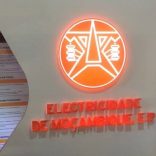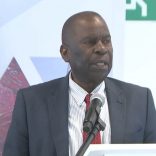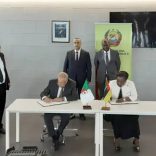Mozambique: New gold rush in Gondola as locals swarm Mucododzi - Watch
Tax Authority concerned at fuel smuggling

File photo: O País
The chairperson of the Mozambique Tax Authority (AT), Amelia Nakhare, on Thursday expressed concern at the growing contraband and adulteration of fuel in Mozambique, including fuel in transit to other countries.
This phenomenon is happening at a time when the authorities are implementing a project to mark fuels, precisely in order to avoid smuggling and adulteration.
The markers are chemical substances, invisible to the naked eye, which national governments add to refined fuels. The marker does not affect the colour, quality or performance of the fuel, and is used to authenticate fuel.
On Thursday morning, Nakhare visited the Matola port fuel terminal to assess the level of implementation of the project.
“The level of fuel contraband, particularly fuel in transit, is very high”, she said. “With the marking of fuel, we will have greater awareness of what is consumed on the local market, and what should pass through in transit to the region”.
Nakhare said the AT detected in her visit to the terminal a disparity between the volume of sales and the product marked, a difference between what is confirmed by the customs service and what is invoiced. Hence the need to check the measurement of fuel, and particularly to check the measurement of fuel in the trucks which carry it from the ports to various destinations.
“One of our findings is that there is a difference between what is confirmed by customs and what is really shown on the invoice”, Nakhare said. “This means there is a difference between what is invoiced and what is marked”.
She added that the marking project is still in its initial stage, and so it would be premature to make any assessment of its impact. But she guaranteed that, from the point of view of tax collection, there has been an increase in revenue.
“From March to July this year the average fuel tax collected was 1.2 billion meticais a month, while from August to October the monthly average rose to 1.4 billion meticais”, she said.
Currently the fuel marker is added to imported fuel at the five ports where refined fuel is landed – Matola, Beira, Quelimane, Nacala and Pemba.












Leave a Reply
Be the First to Comment!
You must be logged in to post a comment.
You must be logged in to post a comment.